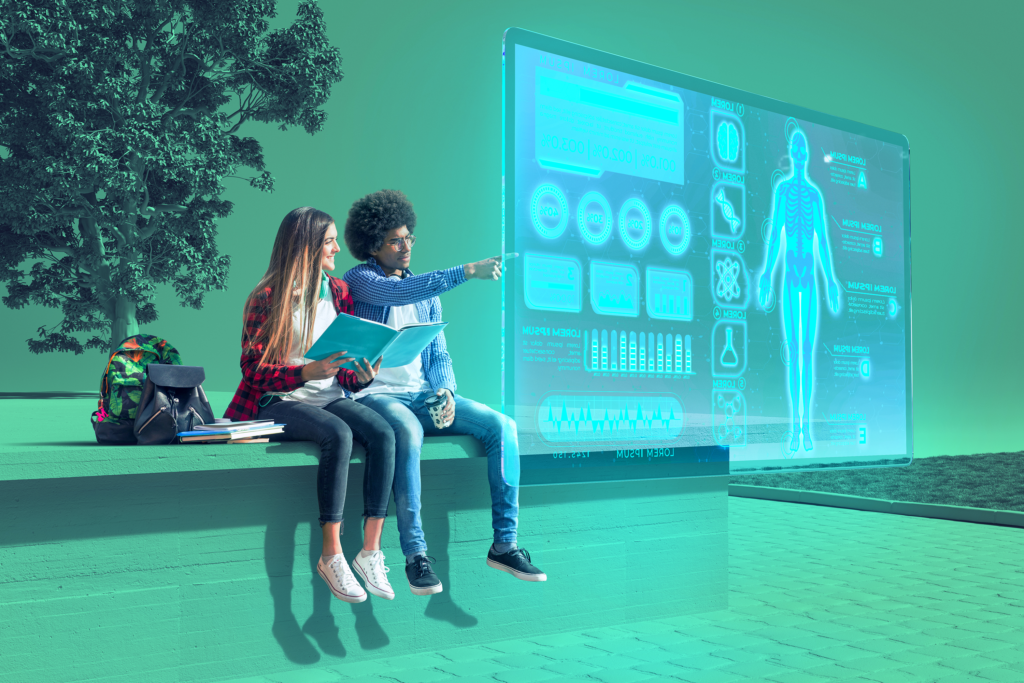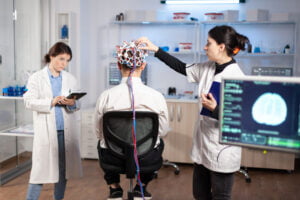Introduction to AI in Education
Artificial Intelligence (AI) has revolutionized various industries, and education is no exception. In recent years, AI has emerged as a powerful tool in tailoring learning paths for students. By leveraging AI algorithms, educational institutions can personalize the learning experience, unlocking the potential of each student. This article explores the benefits of personalized learning, the concept of learning paths, how AI tailors these paths, and the future of AI in education.
The Benefits of Personalized Learning
Personalized learning is an approach that caters to the individual needs and preferences of students. Traditional one-size-fits-all teaching methods often fail to engage and motivate all students, leading to disinterest and limited academic growth. However, personalized learning enables educators to tailor instruction to each student’s unique learning style, pace, and interests.
One of the key benefits of personalized learning is improved student engagement. When students feel that their learning experience is customized to their needs, they become more motivated and invested in their education. This, in turn, leads to better academic performance and a deeper understanding of the subject matter.
Furthermore, personalized learning allows students to move at their own pace. Some students may grasp concepts quickly and require more challenging material, while others may need additional support and reinforcement. With personalized learning, students can progress at a speed that suits them, ensuring a solid foundation before moving on to more complex topics.
Understanding Learning Paths
A learning path represents the journey a student takes to acquire knowledge and skills in a particular subject area. It encompasses the sequence of content, activities, and assessments designed to facilitate learning. Traditionally, learning paths have been predefined by educators, following a linear structure. However, this approach may not cater to the diverse learning needs of students.
AI-powered learning paths, on the other hand, are dynamic and adaptive. They are designed to adjust based on each student’s progress, strengths, and weaknesses. By analyzing data on student performance and engagement, AI algorithms can identify knowledge gaps, areas of strength, and preferred learning styles. This information is then used to customize the learning experience for each student, ensuring optimal learning outcomes.
How AI Tailors Learning Paths
AI algorithms analyze various data points to tailor learning paths for students. These data points include student performance on assessments, engagement with learning materials, and feedback from educators. By collecting and processing this data, AI systems can identify patterns and trends, enabling them to make informed decisions about the most effective content and instructional approaches for each student.
For example, if a student consistently performs well in mathematical concepts but struggles with problem-solving, the AI system can recommend additional practice exercises and resources to strengthen problem-solving skills. Similarly, if a student shows a preference for visual learning, the AI system can provide more visual aids and multimedia content to enhance comprehension.
AI algorithms also consider the progress of a student about their peers. This allows the system to identify if a student is lagging or excelling in comparison to others. Based on this information, the AI system can provide targeted interventions, such as additional support or advanced materials, to ensure that each student is appropriately challenged and supported.
Examples of AI-Powered Learning Platforms
Several AI-powered learning platforms have emerged in recent years, each with its unique approach to tailoring learning paths. One such platform is Khan Academy, which offers a wide range of educational resources and interactive exercises. Khan Academy’s AI system analyzes student performance and provides personalized recommendations for further learning.
Another example is Duolingo, a language learning app that utilizes AI algorithms to personalize the learning experience. The app adapts to the learner’s strengths and weaknesses, focusing on areas that require more practice and reinforcement. This ensures that the learner receives targeted instruction and progresses at an optimal pace.
Implementing AI in Educational Institutions
Implementing AI in educational institutions requires careful planning and consideration. It is essential to establish clear objectives and goals for using AI in personalized learning. Educators and administrators should collaborate with AI developers and experts to ensure that the technology aligns with pedagogical principles and best practices.
Furthermore, training and professional development opportunities should be provided to educators to equip them with the necessary skills to effectively utilize AI tools. Educators need to understand how to interpret AI-generated insights, integrate AI into their teaching practices, and provide ongoing support to students.
Additionally, consideration should be given to the infrastructure and resources required to implement AI in educational settings. This includes robust data management systems, secure platforms, and adequate technology infrastructure to support AI algorithms and processes.
Overcoming Challenges in Using AI for Personalized Learning
While AI holds great promise for personalized learning, some challenges need to be addressed. One of the main challenges is the potential for bias in AI algorithms. If not carefully designed and monitored, AI systems can perpetuate existing biases and inequalities in education. Therefore, it is crucial to ensure that AI algorithms are fair, transparent, and inclusive, promoting equal opportunities for all students.
Another challenge is the ethical use of student data. AI relies on vast amounts of data to tailor learning paths effectively. Educational institutions must prioritize student privacy and data protection, ensuring that data is collected and used responsibly in compliance with relevant laws and regulations.
The Future of AI in Education
The future of AI in education is promising. As AI continues to evolve, it will become increasingly adept at understanding and addressing the unique needs of individual students. AI-powered virtual tutors and intelligent learning assistants will provide personalized guidance, support, and feedback to students, supplementing the role of educators.
Moreover, AI has the potential to facilitate lifelong learning. By tracking and analyzing individual learning progress over time, AI can recommend personalized learning opportunities and resources beyond the classroom environment. This will enable students to continue their educational journey beyond formal education and adapt to the evolving demands of the workforce.
Ethical Considerations in AI-Driven Personalized Learning
As AI becomes more prevalent in education, it is imperative to address ethical considerations. Transparency and accountability are essential to ensure that AI algorithms are fair, unbiased, and respectful of student privacy. Educators, policymakers, and AI developers must collaborate to establish ethical frameworks and guidelines for the use of AI in personalized learning.
Furthermore, it is essential to strike a balance between the role of AI and the human element in education. While AI can personalize learning paths and provide valuable insights, it cannot replace the expertise, empathy, and creativity of educators. Educators should continue to play a central role in guiding and mentoring students, leveraging AI as a tool to enhance the learning experience.
Conclusion
AI has the potential to unlock the potential of students by tailoring learning paths to their individual needs. Personalized learning offers numerous benefits, including increased student engagement and improved academic performance. By leveraging AI algorithms, educational institutions can analyze data, understand learning paths, and provide customized instruction and resources.
However, implementing AI in education requires careful planning, consideration of ethical implications, and ongoing professional development for educators. As AI continues to evolve, it will play an increasingly significant role in shaping the future of education, empowering students to reach their full potential.











